Model Context Protocol (MCP) finally gives AI models a way to access the business data needed to make them really useful at work. CData MCP Servers have the depth and performance to make sure AI has access to all of the answers.
Try them now for free →Connect to SAP Ariba Source Data from Crystal Reports
Use CData Connect Cloud to connect to and report on live SAP Ariba Source data from Crystal Reports.
Crystal Reports is a business intelligence application by SAP designed to help you analyze your data with well-formatted, pixel-perfect, and multi-page reports. When paired with CData Connect Cloud, Crystal Reports gets access to live SAP Ariba Source data. This article demonstrates how to connect to SAP Ariba Source using Connect Cloud and report on SAP Ariba Source data in Crystal Reports.
CData Connect Cloud provides a pure SQL Server interface for SAP Ariba Source, allowing you to query data from SAP Ariba Source without replicating the data to a natively supported database. Using optimized data processing out of the box, CData Connect Cloud pushes all supported SQL operations (filters, JOINs, etc.) directly to SAP Ariba Source, leveraging server-side processing to return the requested SAP Ariba Source data quickly.
Configure SAP Ariba Source Connectivity for Crystal Reports
Connectivity to SAP Ariba Source from Crystal Reports is made possible through CData Connect Cloud. To work with SAP Ariba Source data from Crystal Reports, we start by creating and configuring a SAP Ariba Source connection.
- Log into Connect Cloud, click Connections and click Add Connection
- Select "SAP Ariba Source" from the Add Connection panel
-
Enter the necessary authentication properties to connect to SAP Ariba Source.
In order to connect with SAP Ariba Source, set the following:
- API: Specify which API you would like the provider to retrieve SAP Ariba data from. Select the Supplier, Sourcing Project Management, or Contract API based on your business role (possible values are SupplierDataAPIWithPaginationV4, SourcingProjectManagementAPIV2, or ContractAPIV1).
- DataCenter: The data center where your account's data is hosted.
- Realm: The name of the site you want to access.
- Environment: Indicate whether you are connecting to a test or production environment (possible values are TEST or PRODUCTION).
If you are connecting to the Supplier Data API or the Contract API, additionally set the following:
- User: Id of the user on whose behalf API calls are invoked.
- PasswordAdapter: The password associated with the authenticating User.
If you're connecting to the Supplier API, set ProjectId to the Id of the sourcing project you want to retrieve data from.
Authenticating with OAuth
After setting connection properties, you need to configure OAuth connectivity to authenticate.
- Set AuthScheme to OAuthClient.
- Register an application with the service to obtain the APIKey, OAuthClientId and OAuthClientSecret.
For more information on creating an OAuth application, refer to the Help documentation.
Automatic OAuth
After setting the following, you are ready to connect:
-
APIKey: The Application key in your app settings.
OAuthClientId: The OAuth Client Id in your app settings.
OAuthClientSecret: The OAuth Secret in your app settings.
When you connect, the provider automatically completes the OAuth process:
- The provider obtains an access token from SAP Ariba and uses it to request data.
- The provider refreshes the access token automatically when it expires.
- The OAuth values are saved in memory relative to the location specified in OAuthSettingsLocation.
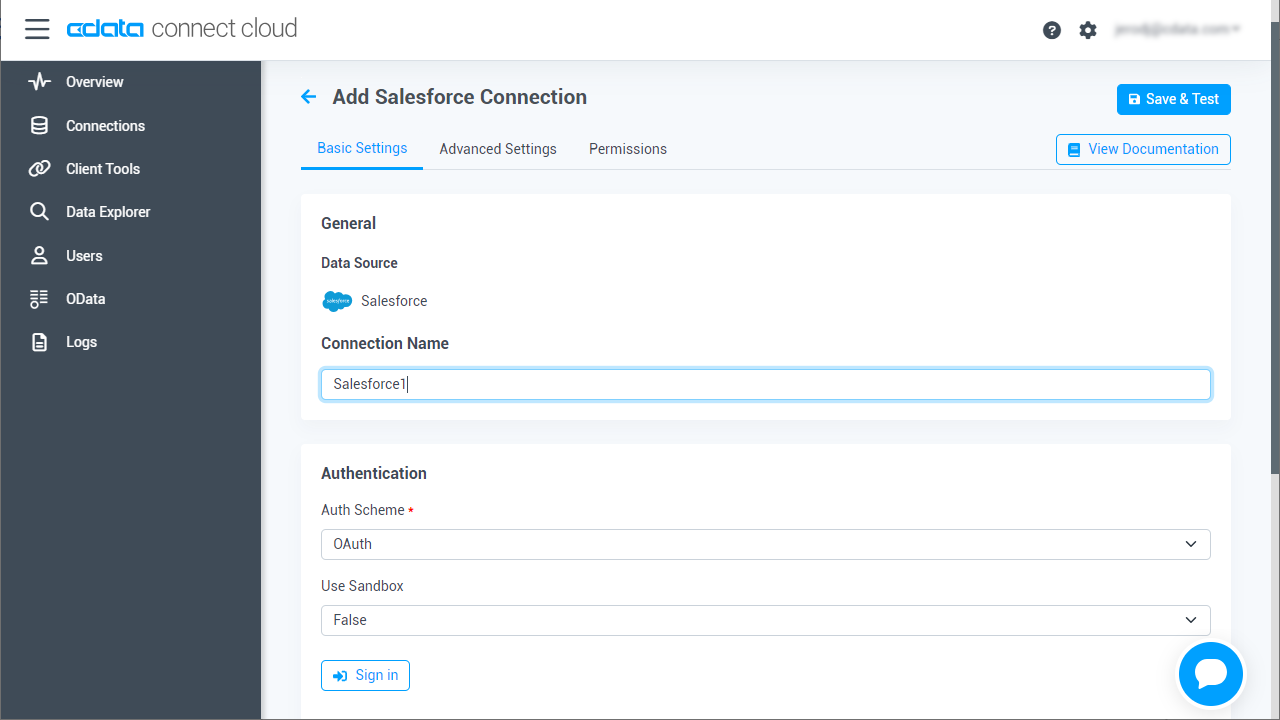
- Click Create & Test
-
Navigate to the Permissions tab in the Add SAP Ariba Source Connection page and update the User-based permissions.
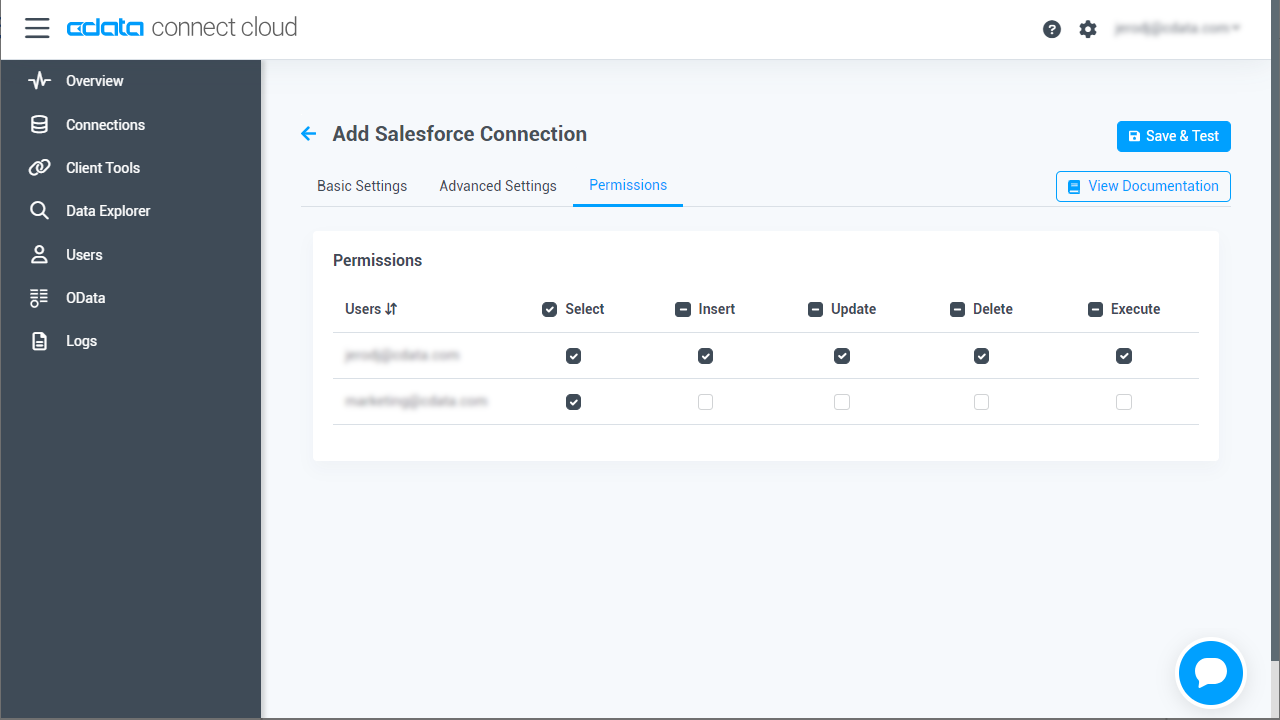
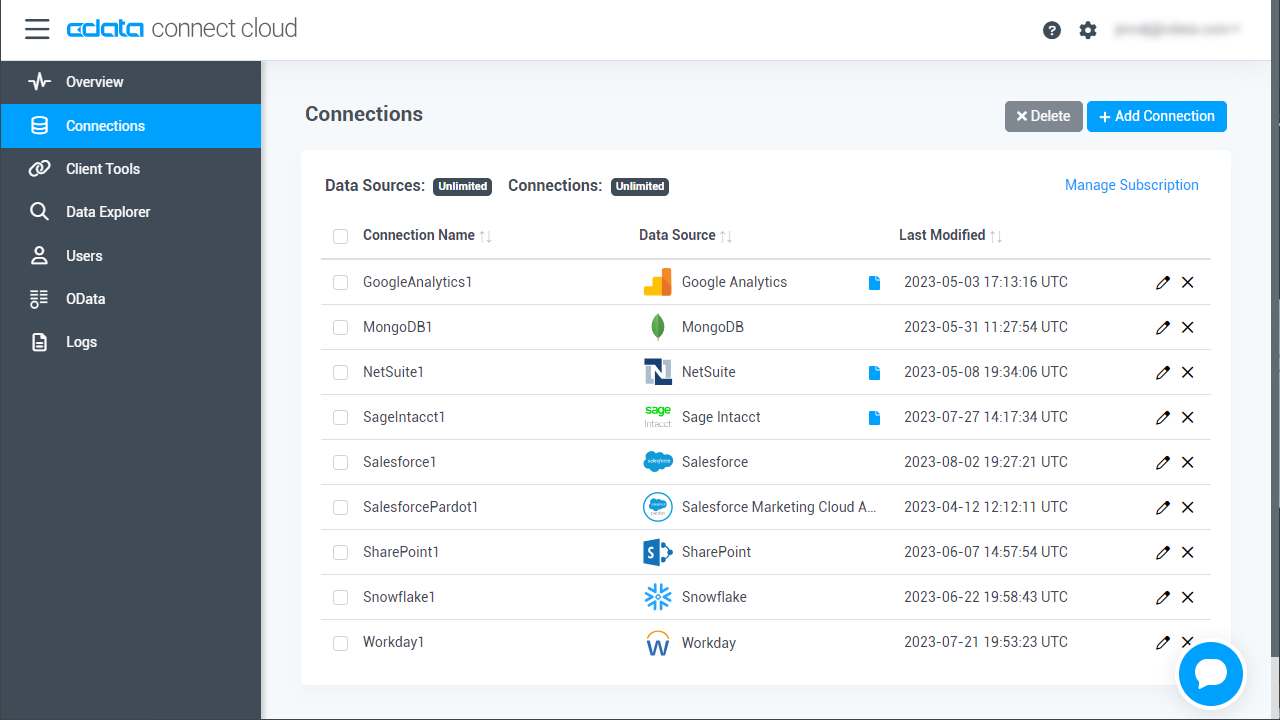
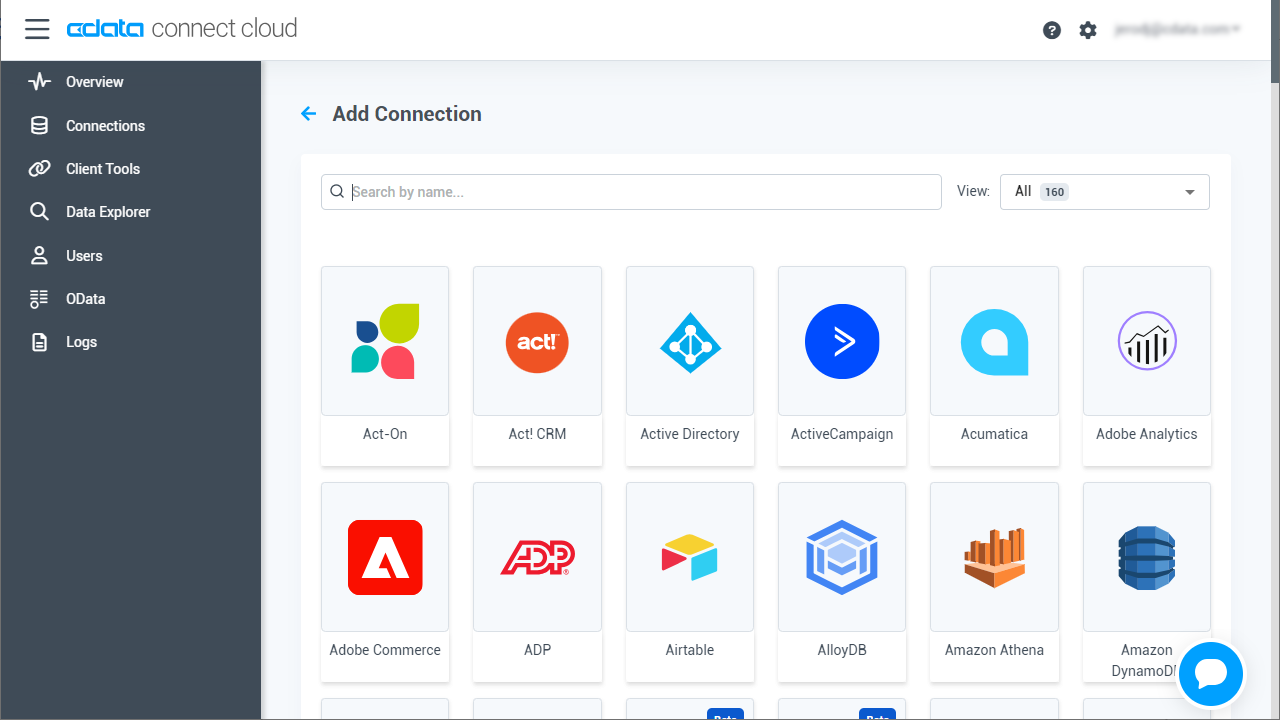
Add a Personal Access Token
If you are connecting from a service, application, platform, or framework that does not support OAuth authentication, you can create a Personal Access Token (PAT) to use for authentication. Best practices would dictate that you create a separate PAT for each service, to maintain granularity of access.
- Click on your username at the top right of the Connect Cloud app and click User Profile.
- On the User Profile page, scroll down to the Personal Access Tokens section and click Create PAT.
- Give your PAT a name and click Create.
- The personal access token is only visible at creation, so be sure to copy it and store it securely for future use.
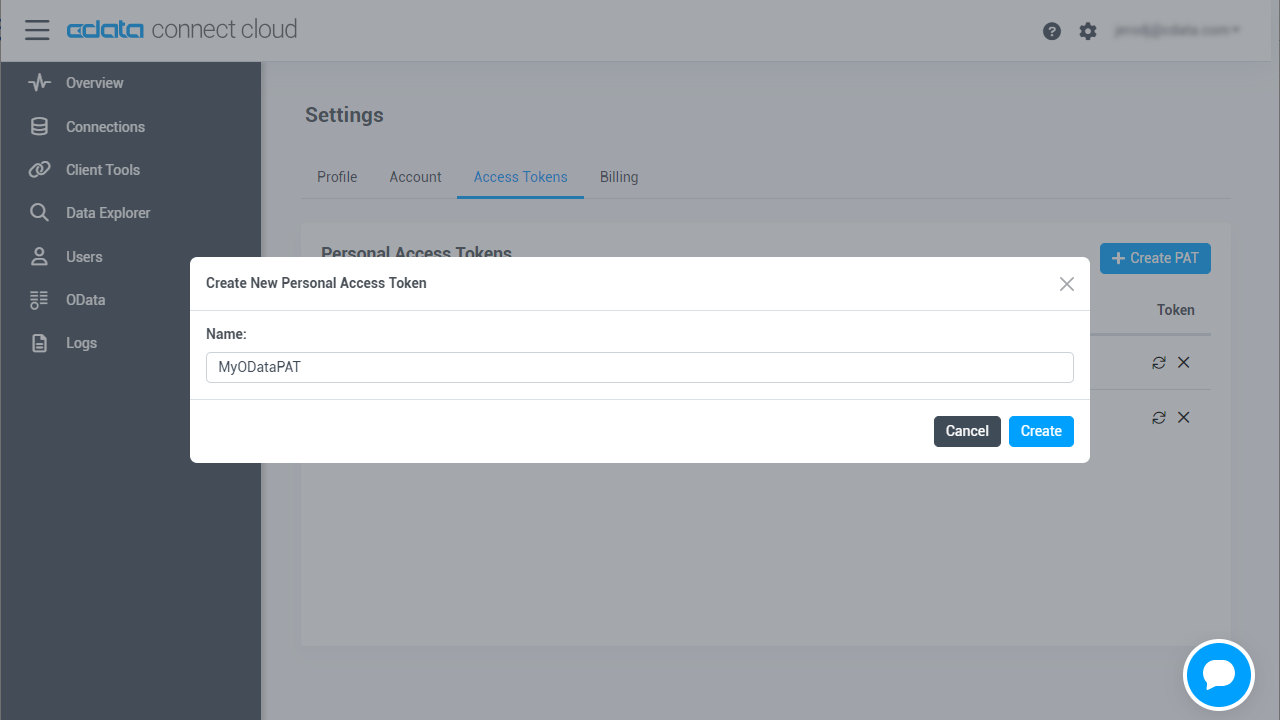
Connect to SAP Ariba Source from Crystal Reports using Connect Cloud
To establish a connection from Crystal Reports to CData Connect Cloud, you will need to download the JDBC driver.
- Open the Client Tools page of CData Connect Cloud.
- In the Dev Tools section, click JDBC.
- Download and run the setup file.
- When the installation is complete, locate the JDBC Connect JAR file in the JDBC driver's installation directory, for example, C:\Program Files\CData\JDBC Driver for CData Connect\lib.
- Copy the JDBC Connect JAR file (cdata.jdbc.connect.jar).
After copying the JDBC CData Connect JAR file, you will need to paste it into the Crystal Reports installation location and configure the connection to Connect Cloud.
- Find the installation directory for Crystal Reports, for example, C:\Program Files (x86)\SAP BusinessObjects\SAP BusinessObjects Enterprise XI 4.0\java\lib
- Paste the JDBC Connect JAR file into the Crystal Reports installation directory.
- Go to the parent java folder. For example, C:\Program Files (x86)\SAP BusinessObjects\SAP BusinessObjects Enterprise XI 4.0\java This folder should contain a CRConfig file.
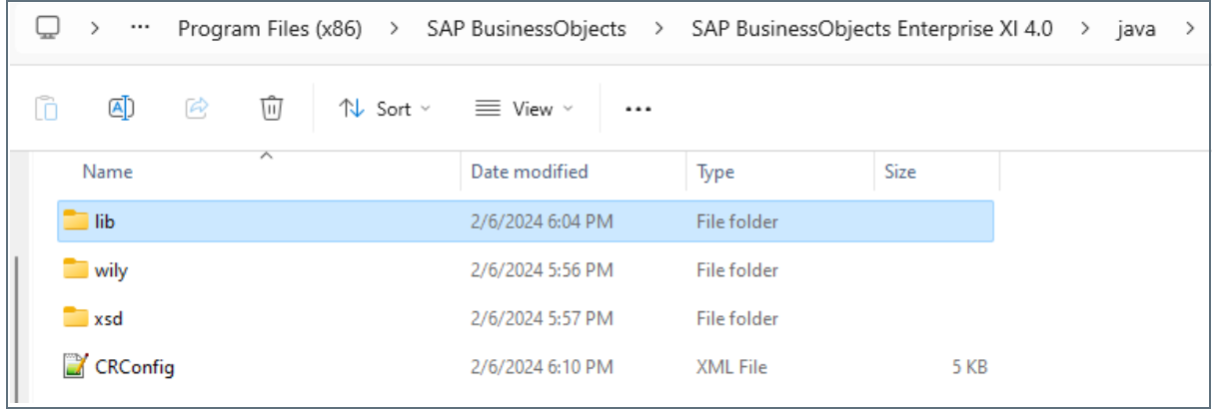
- Open CRConfig in a text editor.
- Add the path to the JDBC CData Connect JAR file in the
of the CRConfig file, for example, C:\Program Files (x86)\SAP BusinessObjects\SAP BusinessObjects Enterprise XI 4.0\java\lib 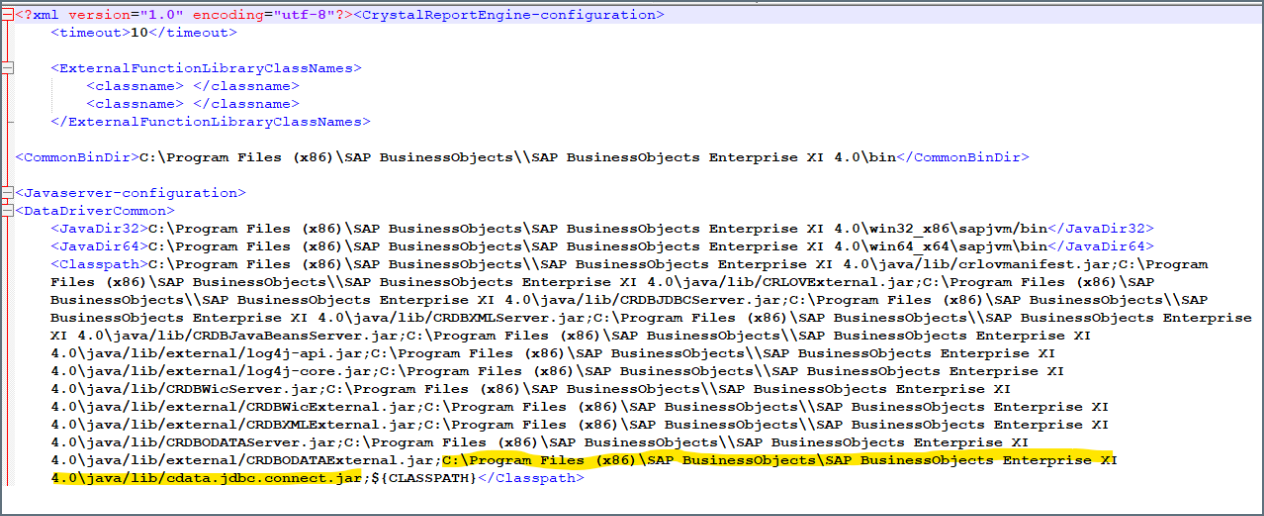
- Log into Crystal Reports and start a blank report.
- In the Database Expert dialog, click Create New Connection.
- Select the JDBC data source and the tables you want to add. Click OK.
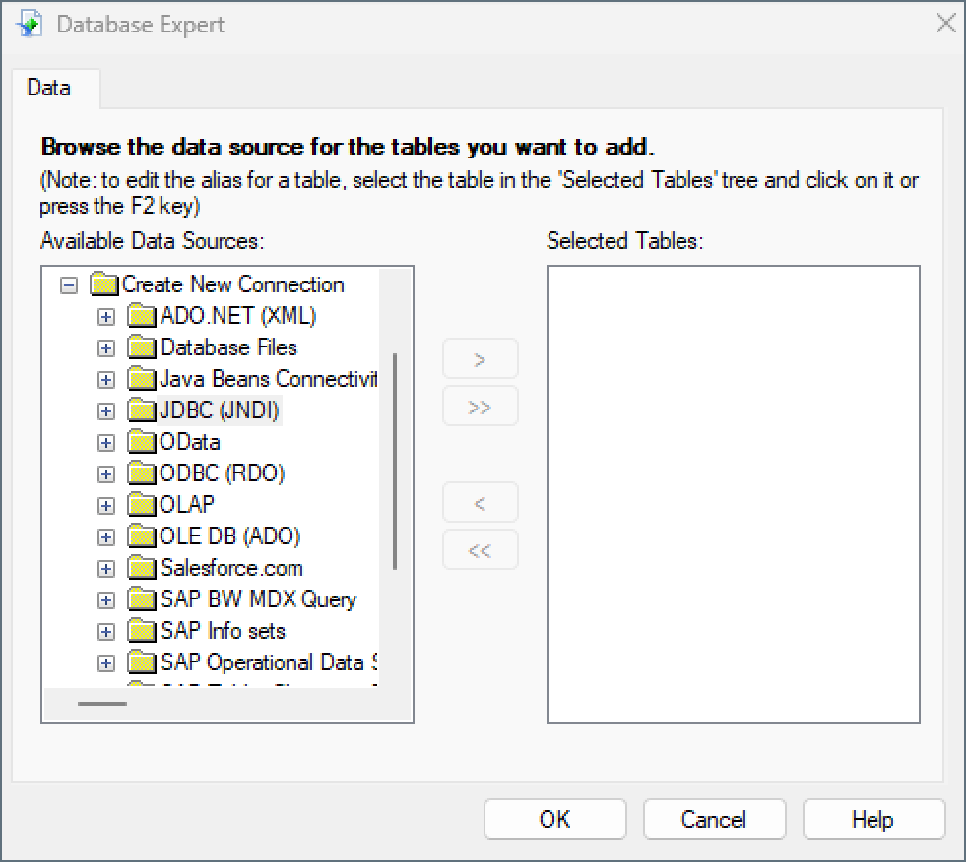
- In the Connection dialog, enter the Connection URL (e.g. jdbc:connect:AuthScheme=OAuth;) and Database Classname (e.g. cdata.jdbc.connect.ConnectDriver).
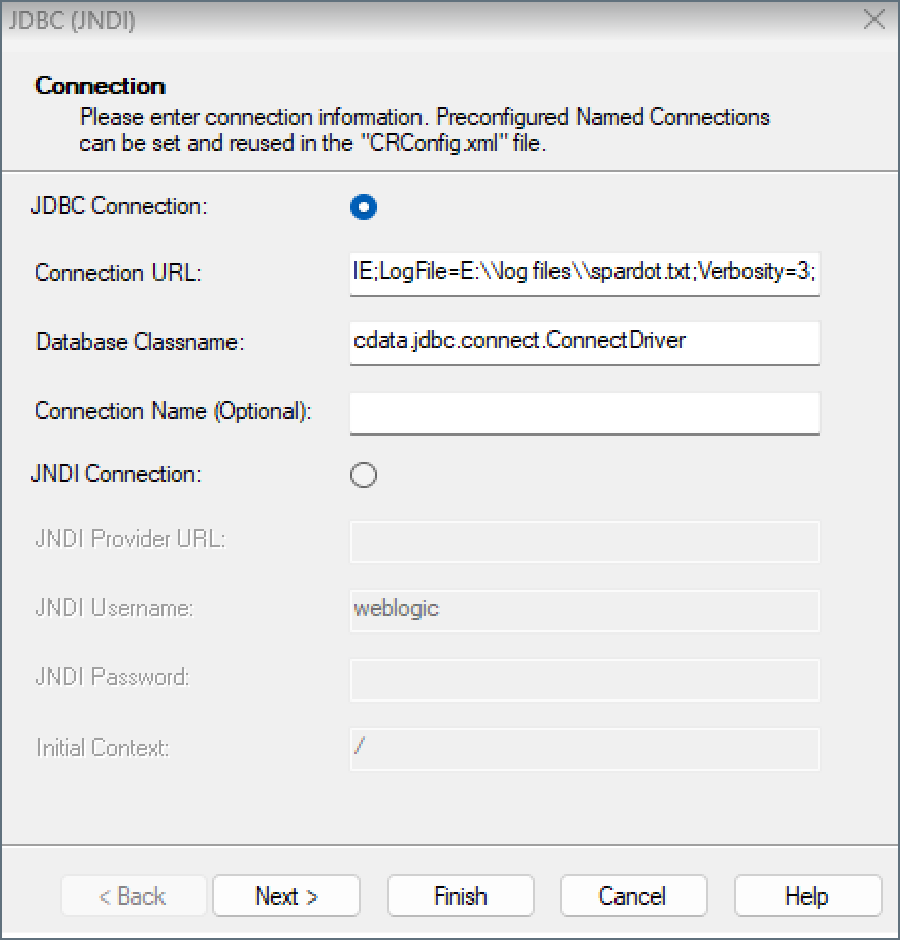
- Click Finish. The Database Expert dialog displays all available connections.
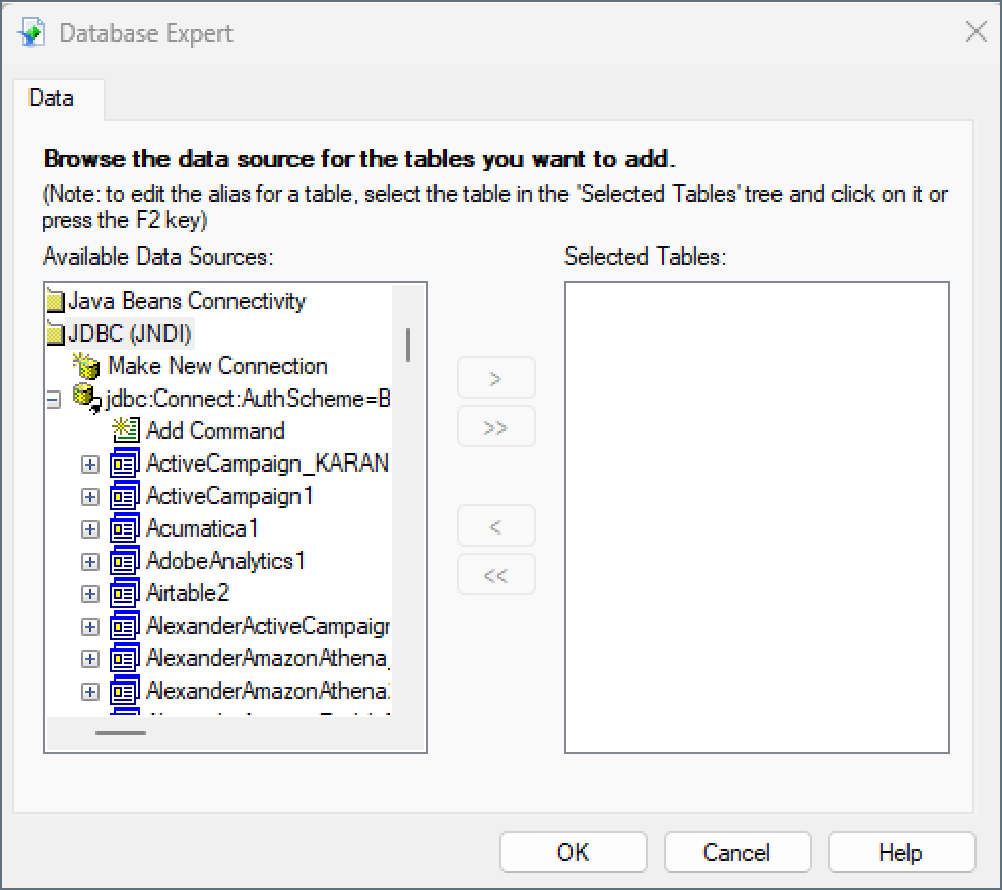
You can now create reports with the connected data.
Get CData Connect Cloud
To get live data access to 100+ SaaS, Big Data, and NoSQL sources directly from Crystal Reports, try CData Connect Cloud today!

